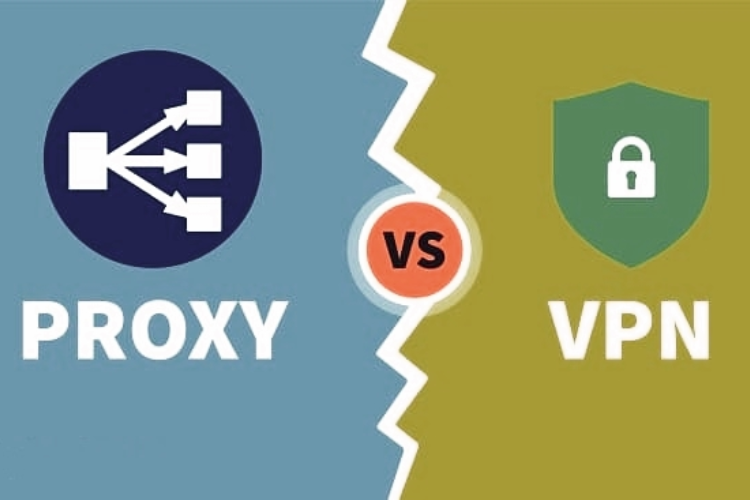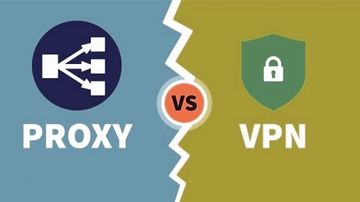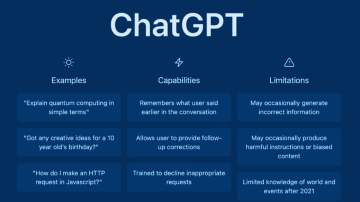
Proxy servers like those offered by Smartproxy and virtual private networks (VPNs) are also workable options for quickly minimizing potential threats. They provide another layer between a user's browser and the potential malicious agent trying to monitor their activity. However, they go above and beyond this. Proxies are primarily used for business automation and site scraping, whereas VPNs are employed for security and privacy concerns. Apart from their advantages, each approach has its shortcomings. Therefore, it is hard to choose which may best meet the company's requirements.
What are proxies and VPNs, how do they function, how are they different from one another, and which should I choose? Here is a summary to help you make the best decision.
How does a VPN Operate, and What is it?
By creating a private and secure connection with a dedicated server, a Virtual Private Network (VPN) service turns a public internet connection into a private network. It is accomplished by giving the user a connection point to the internet, which effectively changes the original IP address to a different one before it reaches its intended location. To safeguard the user's privacy, it builds a data tunnel between the user's device and the internet that conceals the user's location.
How does a Proxy Operate? What is it?
A proxy server, often known as a simple proxy, serves as a middleman and gateway between the user's device and the website. After connecting with the proxy, the user communicates with their end destination through the proxy on their behalf. Proxy servers can also be used to filter material, serve as firewalls, and give a certain level of privacy and security because, like VPNs, this intermediation happens on both sides. They provide shared network connections and cache data to expedite numerous connection requests.
Which is More Advantageous for your Company? A Proxy or a VPN?
This question does not have an easy solution. Both have advantages and disadvantages, and which is preferable ultimately depends on the particular requirements of your firm. Here is a summary to aid with your decision-making.
VPN and proxies share some similarities. There are several things that proxies and VPNs can both guarantee.
-
By serving as a middleman between the user and the internet, they offer an extra degree of privacy and security.
-
They can successfully conceal your IP address and the data to maintain anonymity.
-
Both are perfect if you are around geo-restrictions and access banned resources.
-
They slightly slow down your internet speed.
-
The service quality (and cost) may affect its overall level of efficiency and security.
VPN Benefits and Drawbacks
The fact that VPNs encrypt all data sent and received is the primary benefit of using a VPN versus a proxy server. When secure individual communication must be ensured, they are typically preferred. VPNs reroute all traffic passing through the system, not simply from a particular input point. Since they comprise background programs from all devices, they provide a significantly higher level of coverage.
However, because the request must pass through intermediaries, some latency is unavoidable, which could be problematic if the connection speed is the priority. A good VPN is not cheap and is typically a considerably more expensive option than using a proxy server. But better VPN services typically give cutting-edge features like ad blockers, kill switches, and higher degrees of encryption security.
A Proxy's Benefits and Drawbacks
Contrary to popular belief, proxies are not a less expensive, less secure alternative to VPNs. It is somewhat true that proxies might sometimes be chosen when they provide an easy or less costly solution for needs, like occasionally masking an IP address. However, things are a little more complicated than that. Proxies serve as a single point of entry for all network requests. Proxy servers can effectively distribute and balance traffic loads to increase your network's speed and performance if your company serves many users.
They can store local copies of websites, enabling better bandwidth use and more thorough traffic and data analysis. High-quality proxies, like those from Smartproxy, may gather large amounts of data to track the preferences and actions of your users and staff, preventing the theft of important information and enhancing company security.
Forward proxies are frequently employed for commercial purposes to collect data from external websites and providers. A lot of information can be monitored by sending several queries to a website instantly, using several IP addresses without worrying about being blocked or banned by the host. Proxies can establish IP addresses for mobile devices, homes, and data centers for large-scale web tracking and scraping.
Conclusion
Proxy servers and VPNs are excellent options for circumventing geo-restrictions and offering privacy and anonymity. VPNs are typically preferable for individual navigation and environments that demand a higher level of security.
Proxies can unlock data sources' potential and automates tasks better. It is an indispensable tool for data scraping and tracking user and employee activity.
Your company can set up a simple solution with proxy providers. Smartproxy offers goods, including 40M+ residential IPs. Dedicated data center proxies give you complete control over the IPs you receive, data center proxies from the US, and SERP Scraping API, combining a proxy network, web scraper, and data parser into one fantastic product. Additionally, it offers free software and extensions like X Browser, Smart Scraper, Firefox and Chrome add-ons, and Address Generator. The service delivers a potent combination of quality, ease of use, and reasonable rates, making it a comfortable choice for novice and expert-level customers.







